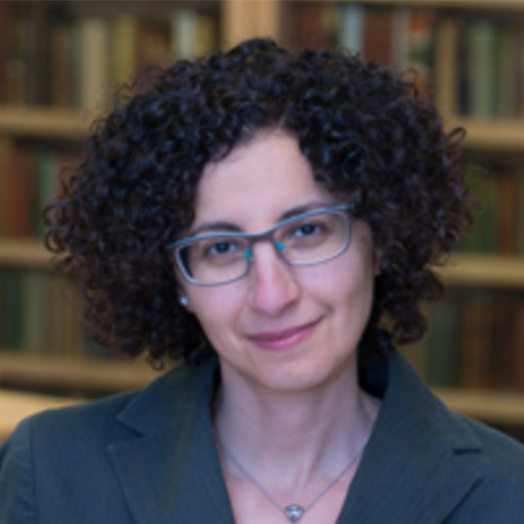
Febe Armanios Visiting Fellow, AY 2015-2016
Febe Armanios is Associate Professor of History at Middlebury College. She received her PhD in Middle Eastern and Islamic History from the Ohio State University in 2003. She specializes in the history of Coptic Christians in Egypt, and her research is centered on comparative religious practices (from pilgrimage and the veneration of saints to food customs), communal identity, and gender roles. She is the author of Coptic Christianity in Ottoman Egypt (Oxford University Press, 2011), as well as several articles published in journals such as Middle Eastern Studies, Muslim World,and the International Journal of Middle East Studies. Over the years, she has been awarded fellowships from the American Research Institute in Turkey, the Fulbright Foundation, the National Endowment for the Humanities, the Philanthropic Education Organization, the Andrew Mellon Foundation, the Gerda Henkel Foundation, the John Templeton Foundation, among others.
Her current book project, Satellite Ministries: The Rise of Christian Television in the Middle East, is based on documentary sources and field interviews conducted in Egypt, Cyprus, Lebanon, Turkey, and the United States. The book explores the social, religious, and political significance of Christian television in the region, focusing on the tension between channels that have been funded and supported by charismatic and evangelical groups in the United States and Europe and those that have been developed by indigenous Christians, such as Maronites and Copts.
Armanios and Boğaç Ergene will work on a joint project exploring the evolution of halal food (food that is Islamically permissible) dictums and practices in the Islamic tradition, more specifically, how Muslim jurists—from medieval to modern periods—have negotiated and reinterpreted understandings of halal to address a variety of internal and external challenges. Halal food traditions have been at the center of belief and practice within Islamic history, from the religion’s rise up to the present. What to eat, what to avoid, restrictions on alcohol, smoking, or coffee, and so on served to distinguish Muslim communities from other religious groups and to imprint religion in the daily lives of believers. In their project, Armanios and Ergene investigate categorical associations of halal practice as embedded in the Qur’an, ahadith, as well as jurisprudential sources. They will explore dietary provisions such as those governing alcohol consumption, the prohibition of the pig, animal slaughter, and butchery. Their research into legal sources will be supplemented by historical chronicles and travel accounts, as well as modern legal discussions and constitutional interpretations.